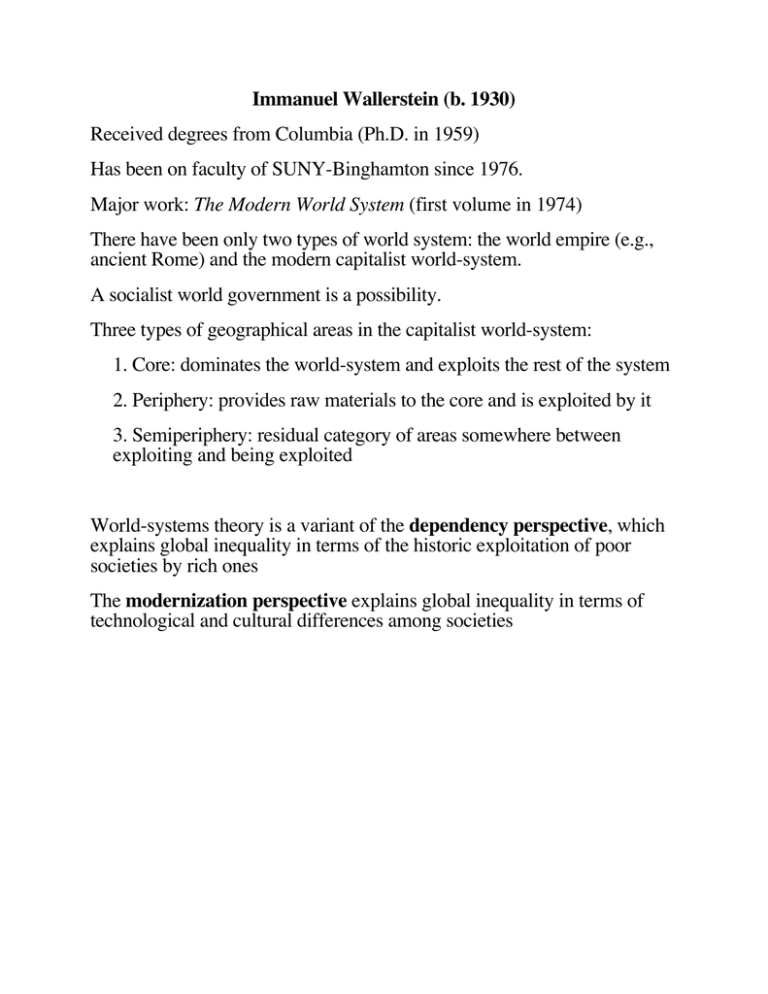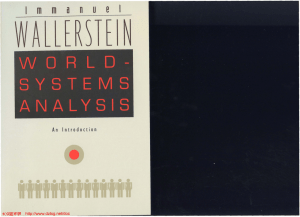Immanuel Wallerstein (b. 1930) Received degrees from Columbia (Ph.D. in 1959)
advertisement

Immanuel Wallerstein (b. 1930) Received degrees from Columbia (Ph.D. in 1959) Has been on faculty of SUNY-Binghamton since 1976. Major work: The Modern World System (first volume in 1974) There have been only two types of world system: the world empire (e.g., ancient Rome) and the modern capitalist world-system. A socialist world government is a possibility. Three types of geographical areas in the capitalist world-system: 1. Core: dominates the world-system and exploits the rest of the system 2. Periphery: provides raw materials to the core and is exploited by it 3. Semiperiphery: residual category of areas somewhere between exploiting and being exploited World-systems theory is a variant of the dependency perspective, which explains global inequality in terms of the historic exploitation of poor societies by rich ones The modernization perspective explains global inequality in terms of technological and cultural differences among societies What is capitalism? Capital: accumulated wealth that is invested with the objective of selfexpansion Before capitalism it was not easy to invest capitalism because not all elements of the circuit of capital were commodified. Under capitalism, capitalists who don’t attempt to expand capital go bankrupt. “Historical capitalism, is, thus, that concrete, time-bounded, spacebounded integrated locus of productive activities within which the endless accumulation of capital has been the economic objective or ‘law’ that has governed or prevailed in fundamental economic activity.” (p. 18) Capitalism began in late 15th Century Europe and expanded to cover the entire globe by late 19th Century. It was brought into existence by Europe’s upper strata since feudalism was crumbling. Phenomena explained by capitalism: racism, sexism, technological advances, universalism (belief in progress, meritocracy, etc.), the nationstate Capitalism is absurd.




